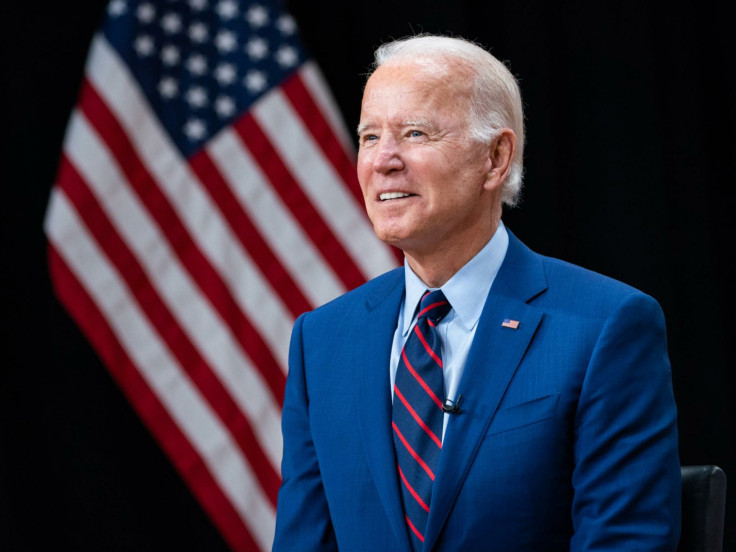US President Biden EV Mandate Stirs Problems in Car Ownership
Less than 8 per cent of new cars sold in 2023 were electric (EV)

President Joe Biden's mandate for electric vehicles is bringing about changes that many find to be a challenge. The US President's stance could result in challenges for individuals to retain their current gas-powered cars, SUVs, or trucks.
On the other hand, Biden administration officials emphasise that the new auto greenhouse gas emissions standards unveiled on Wednesday do not constitute an electric-vehicle mandate. However, both the liberal press and climate lobbyists remain sceptical, and Americans should too.
Another 'Lie of the Year'?
In 2013, then-President Obama was awarded the "lie of the year" title after repeatedly assuring Americans, "If you like your health care plan, you can keep it." However, the promise was impossible to keep.
Notably, the implementation of Obamacare (the Affordable Care Act) resulted in millions of individuals receiving cancellation notices for their healthcare plans. Unsurprisingly, the government's intervention in the private health insurance market had significant repercussions, leaving many Americans discontented.
Following his former boss's footsteps, President Joe Biden is preparing to bring about significant disruptions in another US industry: automobiles. Unlike Obama, Biden doesn't provide the same reassurance to the American people that they can retain their current vehicles if they like them.
Biden’s EPA can justify his new EV rules only by cooking the books
— Owen Gregorian (@OwenGregorian) April 3, 2024
Before federal regulations are implemented, they must be justified with an extensive analysis of costs and effects. The new Environmental Protection Agency rule forcing a massive shift toward electric vehicles is… pic.twitter.com/9D96EAMBpC
Moreover, Biden needs to be more transparent with the public regarding the true implications of his new Environmental Protection Agency rule.
The push for electric vehicles and the roadblocks ahead
Last month's headline announcing the EPA mandate states: "Biden-Harris Administration finalises strongest-ever pollution standards for cars that position US companies and workers to lead the clean vehicle future, protect public health, address the climate crisis, save drivers money."
While the meaning remains ambiguous, USA Today's Ingrid Jacques translates it to: "If you like your current gas-powered car, SUV or truck, too bad."
Biden's rules don't take people's preferences into account
This rule's timing isn't coincidental. It allows Biden to assert a "victory" on his commitments to the climate change community well before the presidential election. If Biden's current circumstances are anything to go by, he needs all the assistance he can muster.
However, if drivers fully understand the full scope of the consequences, they will likely generate little popular support for the president. The stricter emission standards, which took effect in 2017, mandate a significant increase in automakers' production of electric vehicles.
In March 2024, the Environmental Protection Agency (EPA) finalised stricter emission standards. These regulations aim for roughly 70 percent of new car sales in 2032 to be electric vehicles (EVs) or hybrids.
At the federal level, the Environmental Protection Agency (EPA) released new rules on Wednesday that would require automakers to reduce the emissions of new vehicles by about 50% from model year 2026 to 2032
— liberty 667 (@liberty667) April 1, 2024
To get there, the EPA says it's likely that 35% to 56% of vehicles will… pic.twitter.com/BmJywo2SYK
It is worth noting that EVs only account for around 8 percent of new car sales. So, achieving the ambitious target will require automakers to increase production significantly. Failure to comply could result in substantial fines.
The implementation of these regulations coincides with a period of slow EV adoption. Consumer demand for EVs currently falls short of expectations. In addition, the Chinese firm BYD has recently overtaken American EV maker Tesla, the leading automotive company in EV sales.
Consumer interest in EVs has waned over the past four months. Public concerns persist regarding the limited availability of charging stations, the high cost of EVs, and the complexity of tax incentives.
Even a leading EV manufacturer, Tesla, has experienced a recent sales slowdown. These factors, coupled with anxieties about driving range and overall affordability, contribute to the slow adoption of electric cars in the United States.
© Copyright IBTimes 2024. All rights reserved.






